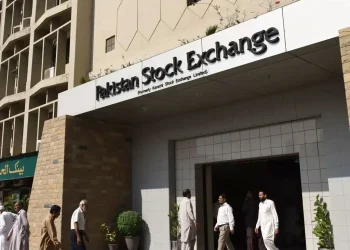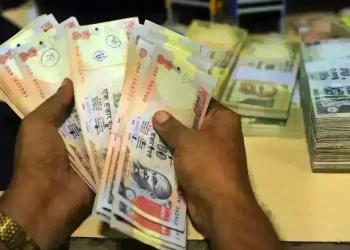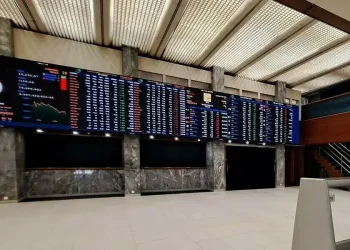LONDON/SINGAPORE: The euro climbed on Monday after a convincing and historic win by the French far right in the first round of parliamentary elections fell slightly short of some expectations, leaving the final result dependent on party deals before a second round next weekend.
Meanwhile, the yen hovered around a 38-year low after data showed Japan’s economy shrank more than initially reported in the first quarter, leaving traders on alert for signs of intervention to prop up the currency.
Marine Le Pen’s far-right National Rally (RN) party won the first round of France’s parliamentary elections on Sunday by a large margin, exit polls showed, although analysts noted it won a smaller share of the vote than some polls had initially projected, triggering a rally in stocks and bonds.
The euro was last 0.3% higher at $1.0748, having earlier climbed more than 0.5% to a two-week high. It has lost around 1.3% since the French far right triumphed in European parliamentary elections in early June, prompting President Emmanuel Macron to call a snap domestic election.
“They (RN) have actually performed a little bit worse than what was expected,” said Carol Kong, a currency strategist at Commonwealth Bank of Australia.
Banks have a year to shift clearing from London to EU: Eurex
“We might actually get less fears of more expansionary and unsustainable fiscal policy if the far-right party did a little bit worse.”
Investors have been concerned that the RN could come to power through “cohabitation” with Macron and push a high-spending and euro-sceptic agenda.
“First round results are not offering much certainty about the composition of the parliament, and the second round scheduled for next weekend is in fact the big risk event,” said Francesco Pesole, currency strategist at ING.
Pesole also said the fact that the left-wing coalition, which also wants to boost government spending, did not receive more votes than expected was likely boosting the euro too.
The rise in the euro sent the dollar a touch lower against a basket of currencies, though the greenback was on the back foot after data on Friday showed U.S. inflation cooled in May, cementing expectations the Federal Reserve will begin cutting interest rates later this year.
The dollar index was last 0.1% lower at 105.65.









 American Dollar Exchange Rate
American Dollar Exchange Rate